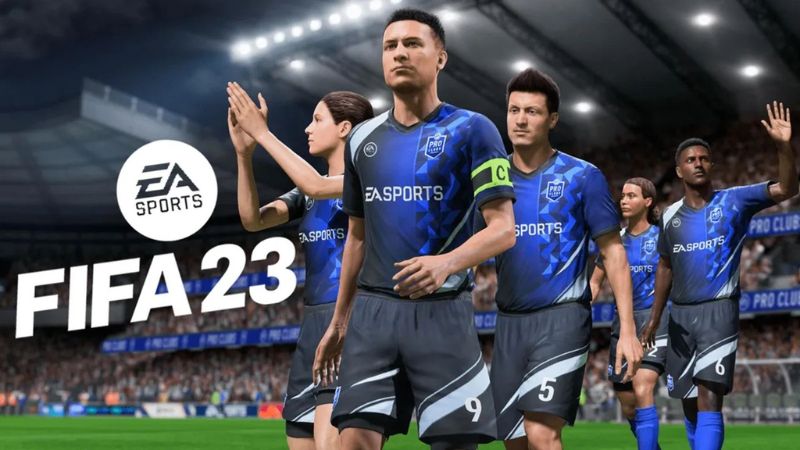Call of Duty: A Comprehensive Exploration of the Iconic Franchise
Introduction
Call of Duty is one of the most influential and enduring franchises in the history of video gaming. Since its inception in 2003, the series has evolved from a World War II shooter to a modern-day behemoth that encompasses various time periods, genres, and gameplay styles. Developed by multiple studios under the Activision umbrella,
Call of Duty has pushed the boundaries of gaming with its engaging single-player campaigns, competitive multiplayer modes, and innovative gameplay mechanics. This article will delve into the origins of
Call of Duty, its gameplay mechanics, character dynamics, cultural impact, and the pros and cons of the series, providing a comprehensive overview of why it continues to captivate millions of players around the globe.
The Origins of Call of Duty
The journey of
Call of Duty began in the early 2000s, when the gaming landscape was rapidly changing, and first-person shooters (FPS) were becoming increasingly popular.
Development Journey
The original
Call of Duty was developed by Infinity Ward and published by Activision. Released on October 29, 2003, the game focused on World War II and aimed to provide a more immersive and cinematic experience compared to existing FPS games. By utilizing a new game engine, the developers were able to create realistic environments and engaging gameplay mechanics that resonated with players.
The success of the first game led to the development of sequels and spin-offs, expanding the franchise’s scope and ambition. The release of
Call of Duty 2 in 2005 solidified its place in the gaming world, and by 2007, the franchise had entered a new era with
Call of Duty 4: Modern Warfare.
Initial Reception
Upon its release,
Call of Duty received critical acclaim for its immersive gameplay, engaging storytelling, and innovative mechanics. The franchise quickly grew in popularity, leading to a series of successful sequels and establishing itself as a major player in the gaming industry.
Gameplay Mechanics
At the heart of
Call of Duty lies its dynamic gameplay, which has evolved over the years to include various modes and mechanics.
Core Features
The series is known for its fast-paced action, engaging narratives, and a variety of gameplay modes that cater to different player preferences.
Campaign Mode
- Narrative-Driven Experience: Each installment typically features a single-player campaign that immerses players in a gripping story, often based on historical events or fictional narratives.
- Cinematic Presentation: The games employ cinematic cutscenes and voice acting, enhancing the storytelling experience.
Multiplayer Mode
Multiplayer has become a cornerstone of the
Call of Duty experience, offering fast-paced competitive gameplay.
Game Modes
- Team Deathmatch: Players compete in teams to achieve the highest number of kills within a time limit.
- Domination: Teams capture and hold objectives to earn points, requiring strategic coordination and teamwork.
- Battle Royale: Introduced in Call of Duty: Warzone, this mode pits players against each other in a large-scale environment, emphasizing survival and strategy.
Zombies Mode
Many titles in the franchise feature a cooperative Zombies mode, where players must survive against waves of undead enemies.
Gameplay Elements
- Cooperative Play: Players team up to fend off increasingly difficult waves of zombies, utilizing weapons and power-ups.
- Easter Eggs: Each Zombies map often includes hidden challenges and storylines, encouraging exploration and teamwork.
Character Dynamics
The characters in
Call of Duty play a significant role in shaping the narrative and engaging players.
Protagonists and Antagonists
Each game features a cast of memorable characters, often drawn from different military backgrounds and time periods.
Iconic Characters
- Captain Price: A recurring character known for his leadership and tactical prowess, Price has become a fan favorite across multiple installments.
- Alex Mason: The protagonist of Call of Duty: Black Ops, Mason’s story delves into themes of loyalty, betrayal, and psychological warfare.
Character Development
The games often explore the backstories and motivations of characters, adding depth to the narrative.
Emotional Arcs
- Complex Relationships: Characters often have intricate relationships, with loyalty and betrayal playing key roles in the unfolding story.
- Personal Struggles: The series doesn’t shy away from exploring the psychological impact of war, adding emotional weight to character arcs.
Visuals and Art Style
One of the standout aspects of
Call of Duty is its impressive visuals and attention to detail.
Graphics and Animation
The franchise has consistently pushed the boundaries of graphics and animation, utilizing cutting-edge technology to deliver a stunning visual experience.
Art Direction
- Realistic Environments: Each game features meticulously designed environments that reflect the time period and setting, from war-torn cities to lush jungles.
- Character Models: The character models and animations are highly detailed, contributing to the immersive experience.
Sound Design
Sound design plays a crucial role in creating an authentic experience, with realistic weapon sounds and immersive audio cues.
Audio Elements
- Voice Acting: High-quality voice acting enhances character development and storytelling.
- Environmental Sounds: The game features ambient sounds that immerse players in the world, from distant gunfire to the sounds of nature.
Community Engagement
The
Call of Duty community has been instrumental in shaping the franchise and fostering a sense of camaraderie among players.
Online Presence
The franchise has a strong online presence, with players actively engaging on social media platforms and gaming forums.
Social Media and Forums
- YouTube and Twitch: Many content creators showcase gameplay, strategies, and tips, attracting a wide audience and promoting community engagement.
- Reddit and Fan Sites: Dedicated communities allow players to discuss strategies, share fan theories, and connect with fellow enthusiasts.
Events and Competitions
Activision frequently hosts events and competitions to keep the community engaged and excited.
Major Events
- Call of Duty League: A professional esports league where top players and teams compete for championships, fostering a competitive spirit among fans.
- Seasonal Challenges and Events: In-game events and challenges encourage players to engage with new content, often tying in with real-world events or holidays.
The Cultural Impact of Call of Duty
Call of Duty has made a significant cultural impact, resonating with players and contributing to the broader gaming community.
Popularity Among Gamers
The franchise appeals to a diverse audience, becoming a staple among gamers who appreciate competitive multiplayer experiences and rich narratives.
Trends and Fads
- Merchandising: The game’s popularity has led to a wide range of merchandise, including clothing, collectibles, and even themed food items.
- Influence on Game Design: The innovative gameplay mechanics and storytelling techniques in Call of Duty have influenced countless games, setting a standard for first-person shooters.
Educational Applications
The themes and stories presented in
Call of Duty can also be utilized in educational settings.
Learning Through Play
- Teamwork and Communication: Players learn to collaborate and communicate effectively to achieve goals in multiplayer modes.
- Historical Context: The games often draw from real-world events, providing players with insights into historical conflicts and military tactics.
The Evolution of Call of Duty
Since its inception,
Call of Duty has undergone significant changes, continually evolving to enhance the player experience.
Regular Updates
Activision has shown a commitment to keeping the franchise fresh through frequent releases and updates.
Major Updates
- New Installments: Each new game introduces innovative gameplay mechanics, new stories, and fresh worlds to explore, keeping the franchise relevant.
- Remasters and Ports: Older titles are often remastered for modern consoles, allowing new generations of players to experience classic adventures.
Community Feedback
The developers actively engage with the community, taking player feedback into account for future updates and improvements.
Listening to Players
- Surveys and Polls: The team often conducts surveys to gather opinions on potential changes or new content, ensuring that the franchise evolves based on user needs.
- Developer Updates: Regular communication from the development team keeps players informed about upcoming features and improvements.
The Pros of Call of Duty
The strengths of
Call of Duty significantly contribute to its acclaim and popularity.
- Engaging Gameplay
- The combination of fast-paced action, engaging narratives, and multiplayer competition creates an addictive experience that keeps players returning.
- Rich Narrative
- The series offers compelling stories that resonate with players, encouraging them to explore the lore of the game.
- Innovative Mechanics
- Each installment introduces new gameplay mechanics that push the boundaries of the first-person shooter genre.
- Iconic Characters
- The memorable characters, including Link, Zelda, and Ganon, have become cultural icons within the gaming community.
- Cultural Representation
- The series draws from various cultural influences, enriching its storytelling and enhancing players' appreciation of diverse narratives.
The Cons of Call of Duty
Despite its strengths,
Call of Duty has some drawbacks that may affect player experiences.
- High Expectations
- With significant hype surrounding each new release, players may have high expectations that could lead to disappointment if not met.
- Potential for Technical Issues
- As with any large-scale game, there may be technical issues at launch that could affect gameplay.
- Difficulty Levels
- Some players may find certain puzzles or combat encounters overly challenging, potentially leading to frustration.
- Repetitive Gameplay
- Depending on the quest structure and combat mechanics, some players may find aspects of the gameplay repetitive over time.
- In-Game Purchases
- If monetization strategies are implemented, it could affect the player experience, especially if they impact gameplay balance.
The Future of Call of Duty
The future of
Call of Duty looks promising, with ongoing support and potential for growth.
Upcoming Features
Developers have hinted at new content and features designed to enhance the player experience, including new quests, gameplay mechanics, and potentially new stories.
Expanding Universe
As
Call of Duty continues to evolve, players can expect more interconnected stories, challenges, and collaborations, further enriching the franchise’s universe.
Conclusion
Call of Duty has successfully established itself as a cornerstone of modern gaming, offering an engaging blend of exploration, storytelling, and innovative gameplay. With its rich narrative, iconic characters, and evolving mechanics, it continues to attract and retain players of all ages. While the series faces challenges such as high expectations and potential technical issues, its strengths far outweigh its drawbacks, earning it a rating of 9.5/10. As players continue to embark on epic adventures in Hyrule, they can look forward to new experiences and the ongoing evolution of this iconic franchise. The journey through the enchanting world of
Call of Duty is just beginning, and the future holds exciting possibilities for both the series and its dedicated fanbase.

































